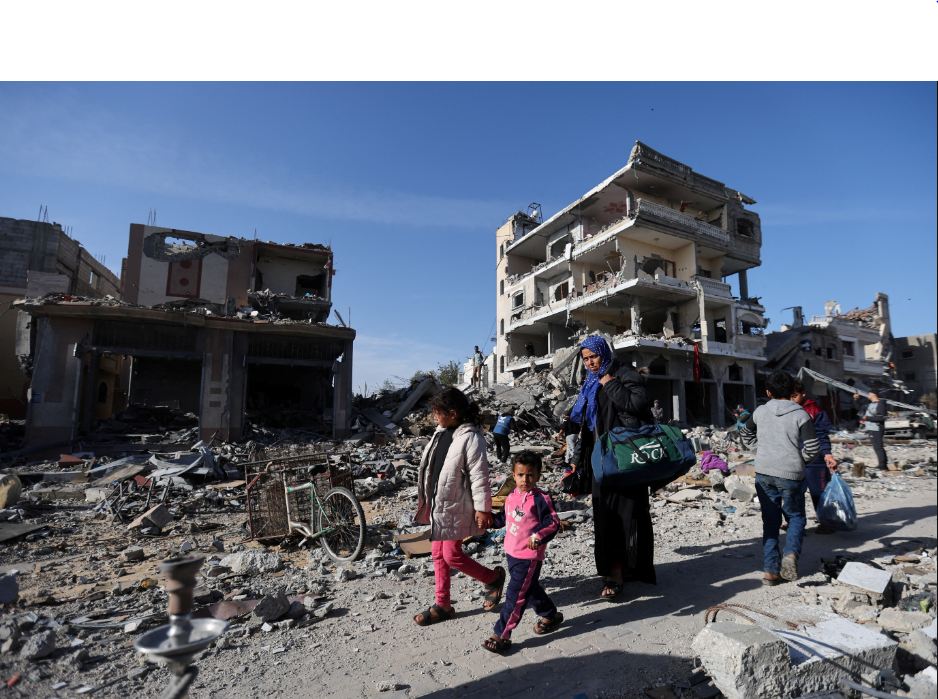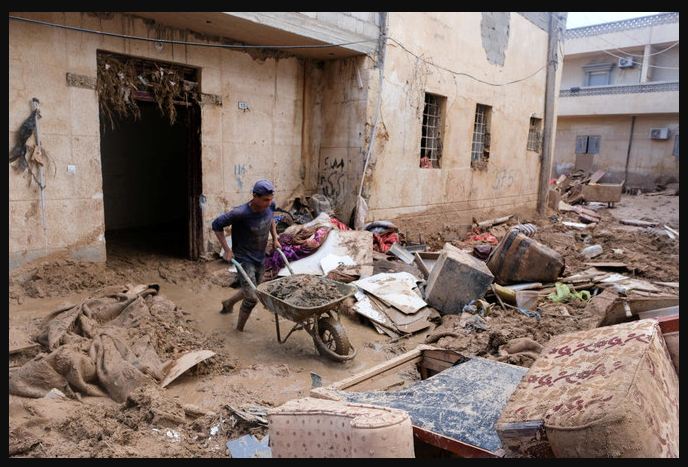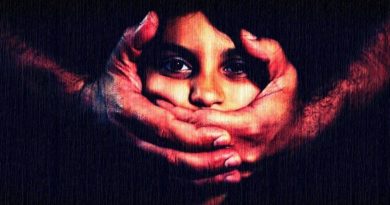Happy but wary, displaced Palestinians try to head home to north Gaza
Khan Younis (Reuters) – Many joyful but wary Palestinians emerged from makeshift shelters at the start of the four-day Gaza ceasefire on Friday to begin the long journey back to their homes.
In the southern town of Khan Younis, which has been housing thousands of displaced families including from heavily bombarded northern Gaza, streets were packed with people on the move.
Hundreds were heading towards the north, despite Israel dropping leaflets warning them not to go back to an area it described as still being a dangerous war zone.
Men, women and children carried their belongings in plastic bags, shopping bags and rucksacks. One family sat on the back of cart piled high with bags and pulled by a donkey.
Some people looked up to the sky as if to check they were not in danger of attack from Israeli warplanes.
“I am now very happy, I feel at ease,” said Ahmad Wael, trudging along with a large mattress on his head.
“I am going back to my home, our hearts are rested, especially that there is a four-day official ceasefire, better than returning to live in tents. I am very tired from sitting there, without any food or water. There (at home) we can live, we drink tea, make bread using fire, and the oven.”
The United Nations says around two-thirds of Gaza’s 2.3 million residents are homeless, including most of the population of Gaza City and the rest of the northern half of the enclave, reduced to a wasteland by Israel’s assault.
Khan Younis, the main city in the south, has also not proved safe. Many of its buildings are now in rubble, destroyed by Israeli strikes in its campaign in response to the deadly Hamas attack in southern Israel on Oct. 7.
“Honestly it is a nice feeling for one to be able to go back home after all this time, to see their families and loved ones, but we are still hesitant and afraid,” said Souad Abou Nasirat, a Khan Younis resident.
“A four-day truce is not enough, those (in the north) of Gaza, may God give them patience. We’re worried about them.”
U.N. agencies voiced hope that the truce would allow aid to flow to northern Gaza for the first time in weeks.
Some People Stay
Alaa Al Moubachar, sitting outside a Khan Younis medical centre with her children, said the neighbourhood where she lived in Gaza City had been destroyed.
“I see people coming and going, coming and going, and I swear my soul is crying, my heart is crying,” she said. “I just want to go back, even if just for an hour to see my house and the neighbourhood, to see Gaza (City) and what happened to it.”
“We went out with nothing, we only took some summer clothes,” she said. “We are (housed) in schools, it is cold, windy and rainy and we don’t have any winter things or anything. We are mentally exhausted. We stand in queues for the bathroom, we stand in queues for the bakery. Our lives have become very, very hard.”
Some Palestinians in Khan Younis say they will wait until the end of the war before returning home.
“Even if I went back home, I fear I (would) go and there would be another attack on the area and I (would) die. I will only go back there once the war is over,” said Ahmad Kabalan, 80, whose home is east of Khan Younis.
“I don’t trust what Israel promises, I don’t have faith in them, not even for an hour. What if there would be artillery shelling? I don’t believe in this ceasefire. God knows what will happen, whether we will live or die.”



